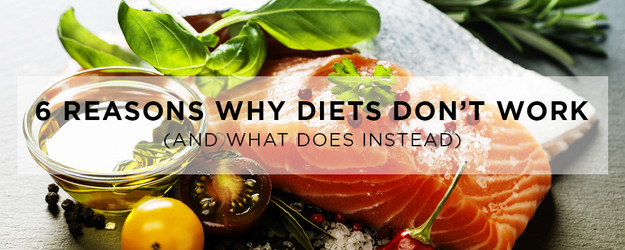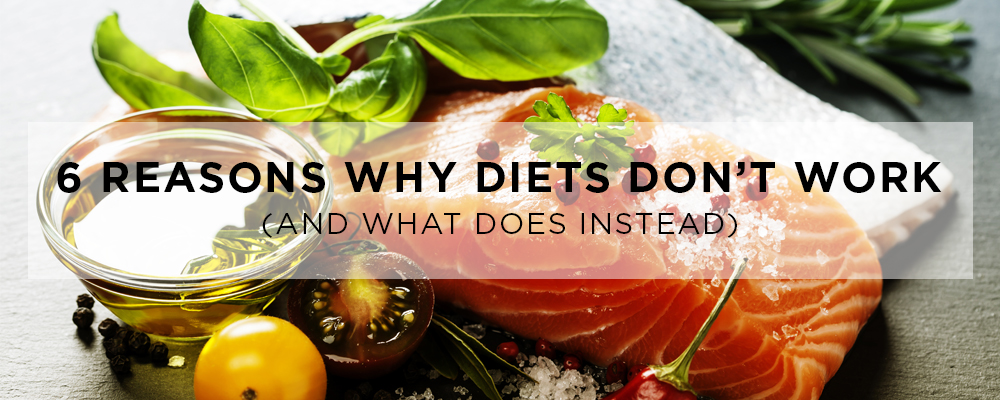6 Reasons Why Diets Don’t Work (And What Does Instead)
Posted by hourglass angel on Jul 15th 2016
At Hourglass Angel we talk a lot about health and fitness in conjunction with waist training and wearing high-quality shapewear—because it’s the full package when it comes to feeling great about your body. Unfortunately, the mistake that a lot of women fall into when they’re seeking a change is dieting.
That’s right, we’ll say it again: dieting is a mistake and it doesn’t work.
It's a medically proven fact. Surprised? If you’re planning to “go on a diet” as part of your weight-loss plan, STOP right there. Here’s why—and what you should do instead.
- “Diets” are short term
Just take a quick browse on Pinterest and you’ll see endless ideas for how to lose X number of pounds in X days. Well…what about after that time period is up? While a short cleanse can be beneficial to detox your system and jumpstart a lifestyle change, a diet with no sustainable long-term plan can do more harm than good when the numbers bounce back up on the scale.
Do this instead: make sustainable changes to your everyday diet with a balanced mix of whole foods that you enjoy.
- Diets deprive you of essential nutrients
We might get a little backlash for saying this, but eliminating whole food groups from your diet can hurt your health (with the exception of foods that cause an allergic reaction). If you’re feeling sluggish or experiencing other health problems on a restricted diet, you might not be getting some of the essential nutrients your body needs!
Do this instead: Eliminate processed foods, not food groups.
- Many diets aren’t based on science
Food science is an evolving field and very few understand it—even the so-called “experts.” Think about it: over the last several decades, advice has changed: avoid fat, avoid carbs, avoid this oil or that oil or that sugar or that food group…who is right? To make things more complicated, what might work for one person doesn’t work for another, because everyone’s metabolism is different.
Do this instead: Stick to a wide variety of whole foods, and trust your gut, literally. Take notes about how you feel when you eat certain foods or combinations of foods. You’re the best expert about your own body.
- Diets deprive you of calories
So here’s some good advice: when you’re hungry, you should eat. Many people feel terrible on a diet because they’re not getting sufficient calories for their needs. Yes, you may need to decrease overall caloric intake if you want to lose weight, but it’s not always as simple as counting calories. If you’re not getting enough calories on a diet, you can actually confuse your metabolism, which might actually lead to weight gain instead of loss!
Do this instead: Listen to your body and learn to be mindful. Keep a food journal and note when you’re eating when you’re actually hungry versus when you’re bored or anxious. If you’re going to decrease calories, drop the empty calories that don’t fill you up like sugary drinks.
- Diets don’t teach you anything
You might try some secret miracle diet, but do you actually know why it’s working? Do you know how you’re going to maintain a healthy lifestyle in the long run? If not, you can look forward to gaining all of the weight back eventually.
Do this instead: Educate yourself about long-term lifestyle changes. Stop browsing on Pinterest and talk to a certified nutritionist (or try a few different ones, because not all are the same!).
- Diets don’t dig deep enough
For many of us, overeating and our relationship with food has a lot more to do with our mental/emotional health than anything else. Dieting doesn’t address the heart of the issue.
Do this instead: If you’ve had a lifelong battle with food (and it’s very common!), consider getting professional help that will help you on a deeper level. Life coaches, professional counselors, spiritual advisors and support groups are just a few of the options available to help you heal your whole self—which includes your body image.


